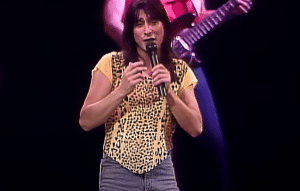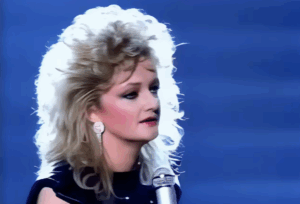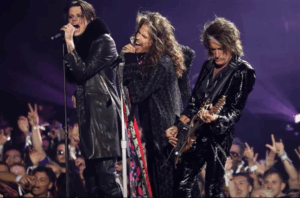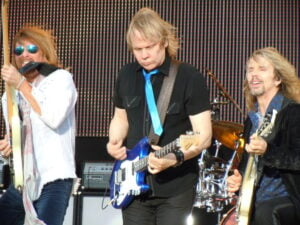10 Worst Catchphrases of the 1960s

via Facts Verse / YouTube
The 1960s brought a wave of change in many ways, including in the language people used. From protests to parties, different groups of people had their own unique styles of speaking. Some phrases became really popular, while others have faded away for good reasons. Here are ten of the worst catchphrases to come out of the 1960s.
“Square”
Calling someone “square” meant they weren’t cool. It implied that the person was old-fashioned and didn’t fit in with the hip culture. Being labeled a “square” was an insult nobody wanted because it suggested that you were out of touch with the latest trends and attitudes.
This term was often aimed at adults and authority figures who were seen as boring or too rigid. The youth culture of the 1960s valued freedom and new experiences, and being called “square” was the opposite of that. Nobody wanted to be on the wrong side of this very unflattering term.
“Fuzz”
“Fuzz” referred to the police, and it wasn’t meant to be flattering. The term often carried a lot of negative feelings. Many young people in the 1960s saw the police as the enemy, especially during protests and civil rights movements. The word “fuzz” was used to show disdain.
The relationship between civilians and police was tense during this period, with many clashes and arrests. Calling the police “fuzz” was one way for people to voice their mistrust and anger. This term didn’t help in making things better and added to the division between groups.
“Pig”
Similar to “fuzz,” calling a policeman a “pig” was a harsh insult. This term showed a complete lack of respect and was used to demean law enforcement officers. Like “fuzz,” it was particularly popular during protests, making an already heated situation even more intense.
Using such negative labels only widened the gap between the police and civilians. The term “pig” is still known today but remains one of the more disrespectful ways to refer to police officers. It’s an example of how language can deepen misunderstandings and conflicts.
“Hawks” and “Doves”
“Hawks” were people who supported the Vietnam War, while “doves” were those who wanted peace. These labels were short but packed with meaning, often dividing families and friends. In the 1960s, these terms became political identifiers that could quickly create tension in any conversation.
The war in Vietnam was a major issue during the decade, and people had strong opinions about it. Calling someone a “hawk” or “dove” immediately put them in a box, often leading to arguments. These terms were simplistic but powerful, and they didn’t help in resolving conflicts.
“Cool Head”
A “cool head” was someone who stayed calm and collected. While the idea sounds good, the term was often used sarcastically. If you were called a “cool head,” it could mean you were boring or too relaxed, lacking the passion and fire that defined much of the 1960s culture.
Being a “cool head” often meant you didn’t get involved in the heated issues of the day. During a time when many were fighting for change, being called this could make you seem detached or uninvolved. In a way, it was a backhanded compliment, making it one of the less desirable labels to carry.
“Badass”
Originally, calling someone a “badass” meant they were troublesome or rebellious. This term was often used to describe people involved in illegal activities or who had a rough attitude. Over time, it has gained a more positive connotation, but in the 1960s, it was an insult indicating someone was bad news.
Being labeled a “badass” suggested that you were not to be trusted or that you lived on the fringes of society. It was not a term of endearment, especially for parents worrying about their kids falling in with the wrong crowd. This made it one of the less flattering phrases of the decade.
“Dropout”
A “dropout” was someone who left school or society’s norms. This term carried a heavy weight of judgment, suggesting that the person was a failure. In the 1960s, dropping out was seen as giving up on a promising future, making this a harsh label for anyone to bear.
Dropping out wasn’t just about leaving school; it could also mean not conforming to society’s expectations. Being a “dropout” was often seen as a lack of ambition or drive, which was looked down upon. This term added to the struggles of those who chose alternative lifestyles.
“All Show and No Go”
This phrase described someone who looked good on the surface but didn’t have much substance. It implied that a person was all about appearances, lacking the skills or abilities to back it up. In other words, they were trying too hard to impress without having real value.
Being labeled “all show and no go” could be quite damaging. In an era where image was becoming increasingly important, this phrase highlighted the downside of focusing too much on looks. It wasn’t a compliment and gave the impression that you were fake or shallow, a tough label to shake off.
“Hog”
Using the term “hog” meant taking more than your fair share, often at someone else’s expense. This could be applied to food, objects, or space. The term made the person sound selfish and greedy, which was particularly frowned upon in the 1960s’ culture of sharing and community.
Being called a “hog” suggested that you didn’t care about others and were only out for yourself. This kind of behavior went against the free-spirited and cooperative ideals that many people held dear during the decade. It was a term that could quickly ruin someone’s reputation.
“Chrome Dome”
A “chrome dome” was a humorous but somewhat mean-spirited way to refer to a bald guy. While it might seem funny to some, the term was not kind. It focused on a physical characteristic, making it a form of teasing that wasn’t appreciated by those it targeted.
In an era that was very much about appearances and youth, calling someone a “chrome dome” could make them feel self-conscious. It was one of those phrases that might get a laugh, but at someone else’s expense. This made it one of the less pleasant catchphrases of the 1960s.















